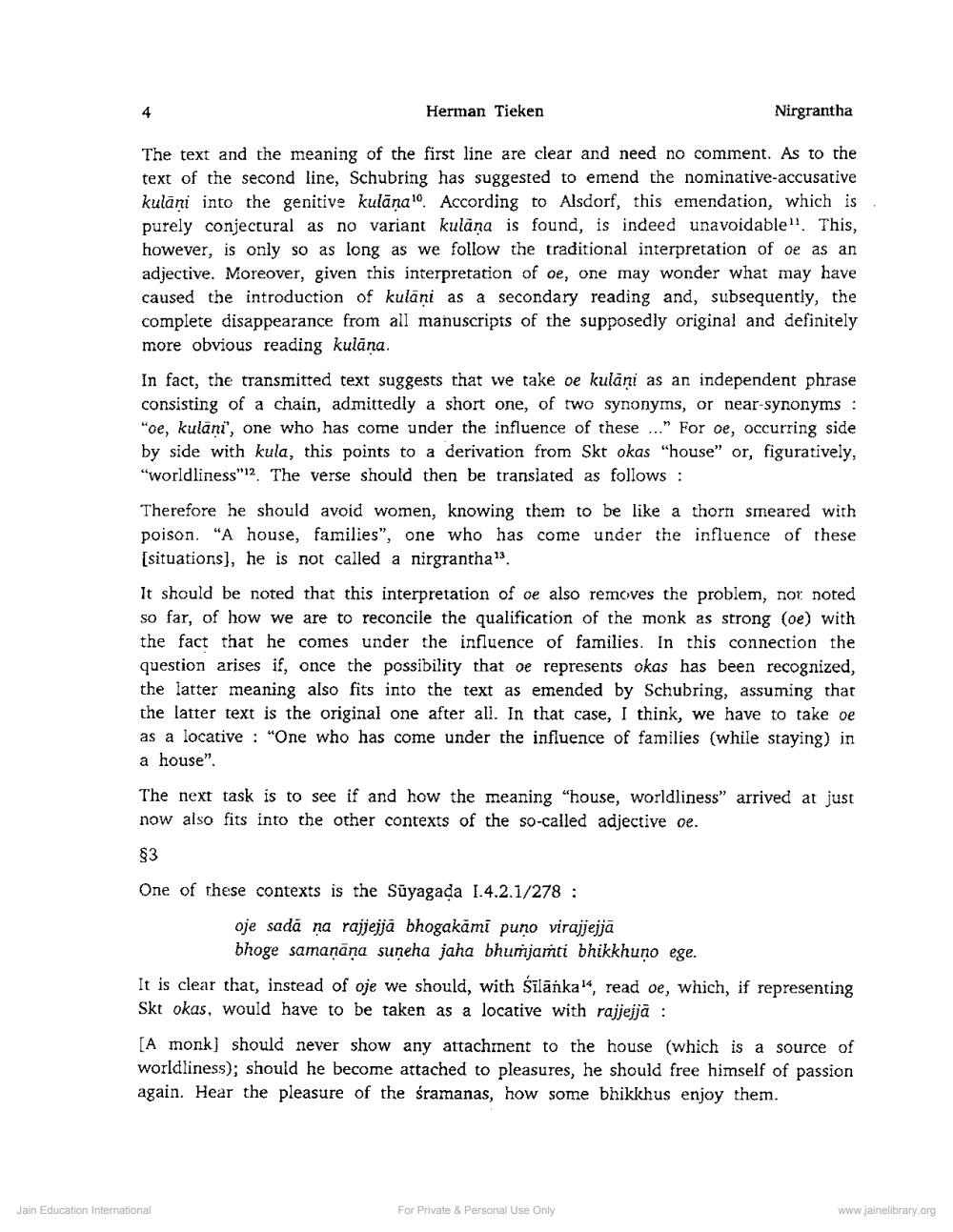Book Title: Word OE in Some Canonical Jaina Texts Author(s): Hermen Tieken Publisher: Z_Nirgrantha_1_022701.pdf and Nirgrantha_2_022702.pdf and Nirgrantha_3_022703.pdf View full book textPage 2
________________ Herman Tieken Nirgrantha The text and the meaning of the first line are clear and need no comment. As to the text of the second line, Schubring has suggested to emend the nominative-accusative kulāņi into the genitive kulāna. According to Alsdorf, this emendation, which is purely conjectural as no variant kulana is found, is indeed unavoidable! This, however, is only so as long as we follow the traditional interpretation of oe as an adjective. Moreover, given this interpretation of oe, one may wonder what may have caused the introduction of kulāņi as a secondary reading and subsequently, the complete disappearance from all manuscripts of the supposedly original and definitely more obvious reading kulāna. In fact, the transmitted text suggests that we take oe kulani as an independent phrase consisting of a chain, admittedly a short one, of two synonyms, or near-synonyms : "oe, kulāni', one who has come under the influence of these ..." For oe, occurring side by side with kula, this points to a derivation from Skt okas "house" or, figuratively, "worldliness"2. The verse should then be translated as follows: Therefore he should avoid women, knowing them to be like a thorn smeared with poison. "A house, families", one who has come under the influence of these [situations], he is not called a nirgrantha". It should be noted that this interpretation of oe also removes the problem, nor noted so far, of how we are to reconcile the qualification of the monk as strong (oe) with the fact that he comes under the influence of families. In this connection the question arises if, once the possibility that oe represents okas has been recognized, the latter meaning also fits into the text as emended by Schubring, assuming that the latter text is the original one after all. In that case, I think, we have to take oe as a locative : "One who has come under the influence of families (while staying) in a house". The next task is to see if and how the meaning "house, worldliness" arrived at just now also fits into the other contexts of the so-called adjective oe. $3 One of these contexts is the Sūyagada 1.4.2.1/278 : oje sada na rajjejja bhogakāmi puno virajjejja bhoge samanāna suneha jaha bhumjaṁti bhikkhuno ege. It is clear that, instead of oje we should, with silānkal, read oe, which, if representing Skt okas, would have to be taken as a locative with rajjejjā : (A monk) should never show any attachment to the house (which is a source of worldliness); should he become attached to pleasures, he should free himself of passion again. Hear the pleasure of the śramanas, how some bhikkhus enjoy them. Jain Education International For Private & Personal Use Only www.jainelibrary.orgPage Navigation
1 2 3 4 5 6 7 8 9 10 11 12 13 14 15 16
